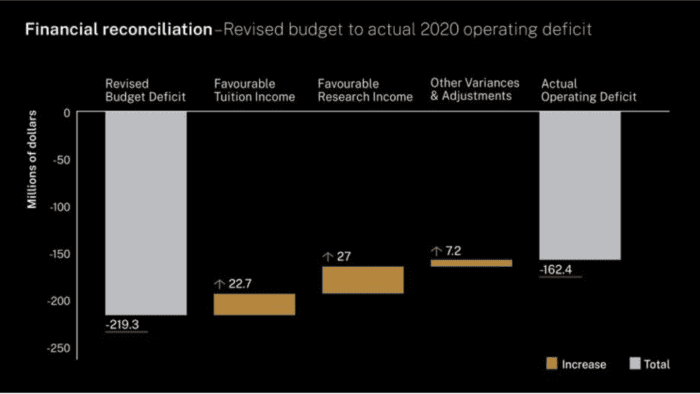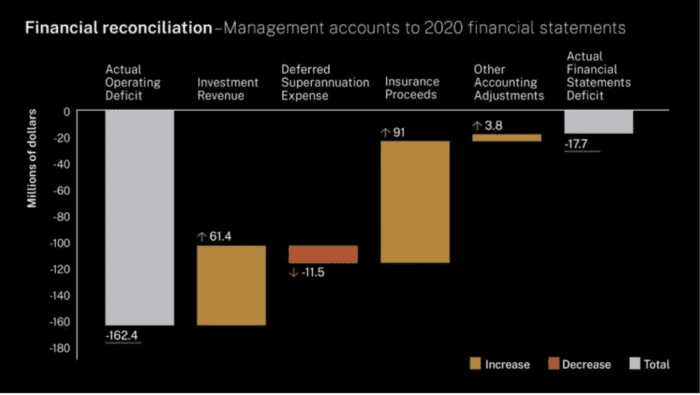The ANU has released its annual financial results for the 2020 financial year, reporting a total deficit of $162.4m after taking extreme cost cutting measures.
The result is a significant improvement on the forecasted deficit of $219m reported early last year. In an email to staff and students, Vice-Chancellor Brian Schmidt stated that the improvement may be attributed to a ‘better-than-expected’ retention of students and a significant number of research grants, representing sums of $22.7m and $27m respectively. In response to the improvement, Schmidt stated that “this does not mean we have $57m more than we thought we had. It simply means we have a smaller deficit” (see Figure 1).

Figure 1
The University’s reported accounting deficit is $17.7m, which can be attributed to a $91m insurance payout for flood and hail damages, $61m of investment returns, $3.8m of accounting adjustments and $11.5m of deferred superannuation expenses (see Figure 2).

Figure 2
Overall, the ANU saw a $172m reduction in investment revenue, including $81m in losses from international tuition fees, and $23m in losses from lower levels of commercial activity on campus.
In a media briefing on Thursday, the ANU explained that over 3000 remote students remain enrolled in courses, only a small decline in numbers from the previous year. In 2019, there were 8,816 full-time international students and 10,974 full-time domestic students. In 2020, 7,020 full-time international students were enrolled and 10,402 domestic students were enrolled.
The ANU highlighted that several key changes have been made in daily operations in accordance with the Recovery Plan. This includes reductions of staff, a more minimal approach to capital plans, and a reduction in travel allowances for staff. According to the Plan, there will be 467 projected staff cuts over a two-year period, bringing current staff numbers back to similar levels as seen in 2018.
In his statement, Schmidt highlighted that the ‘sacrifices you [the ANU community] have made in the past year have gone a long way towards reducing our deficit and future-proofing the University from further financial shocks.”
We acknowledge the Ngunnawal and Ngambri people, who are the Traditional Custodians of the land on which Woroni, Woroni Radio and Woroni TV are created, edited, published, printed and distributed. We pay our respects to Elders past and present. We acknowledge that the name Woroni was taken from the Wadi Wadi Nation without permission, and we are striving to do better for future reconciliation.
